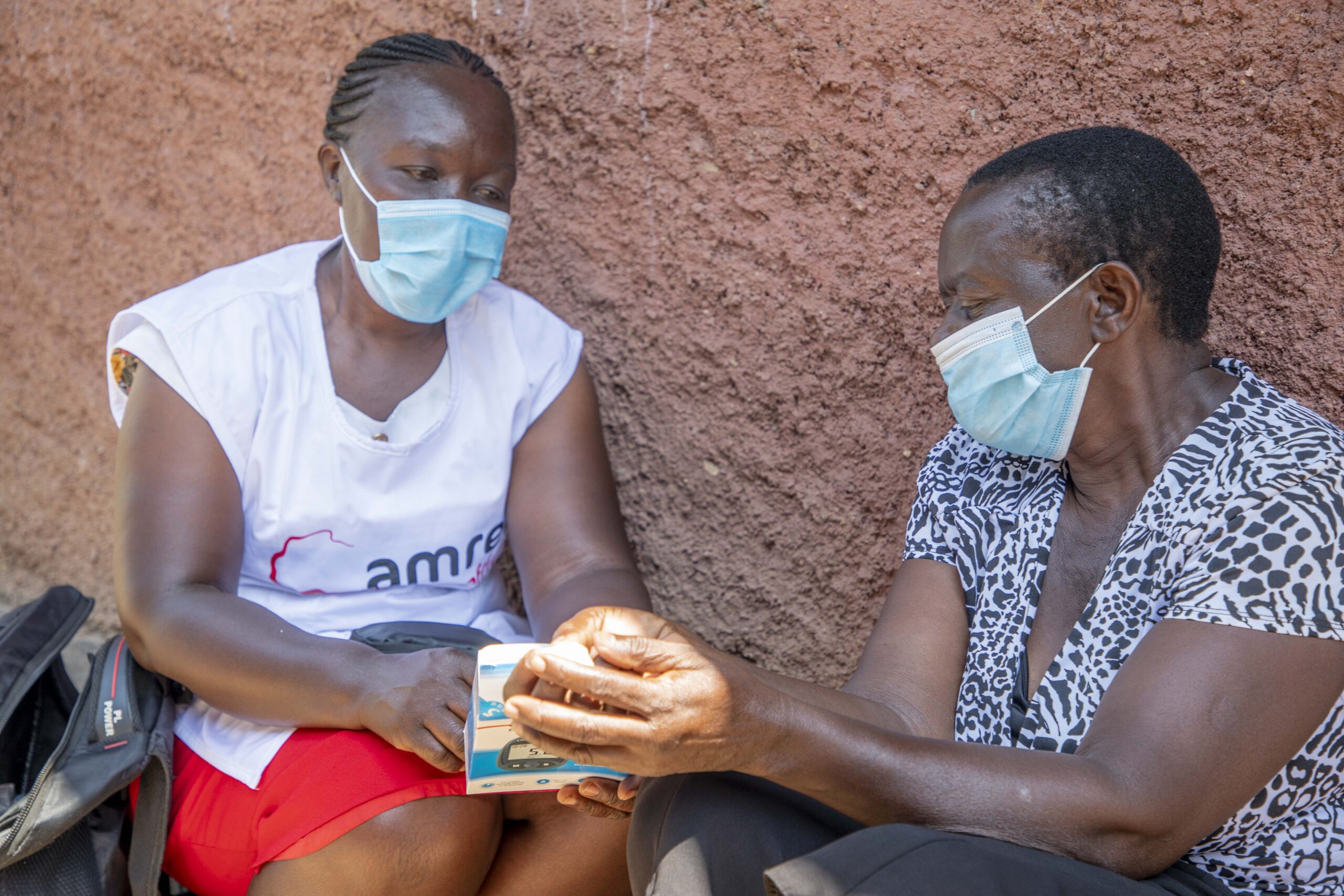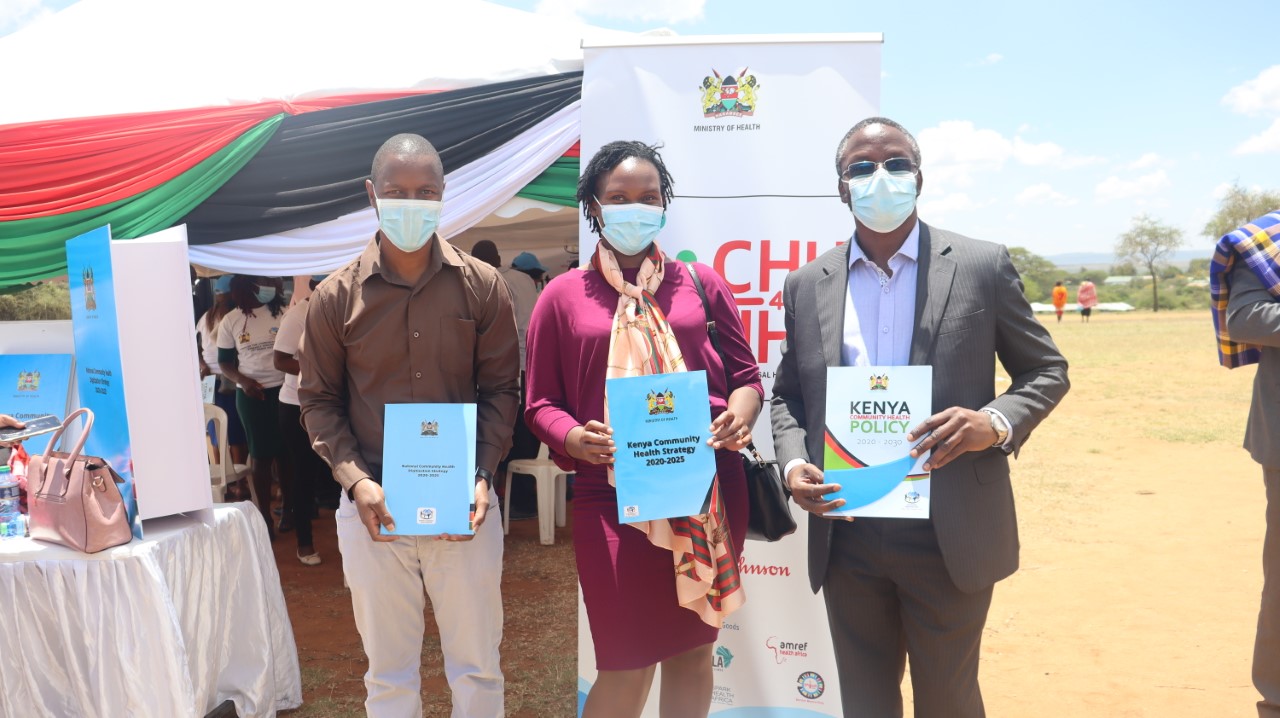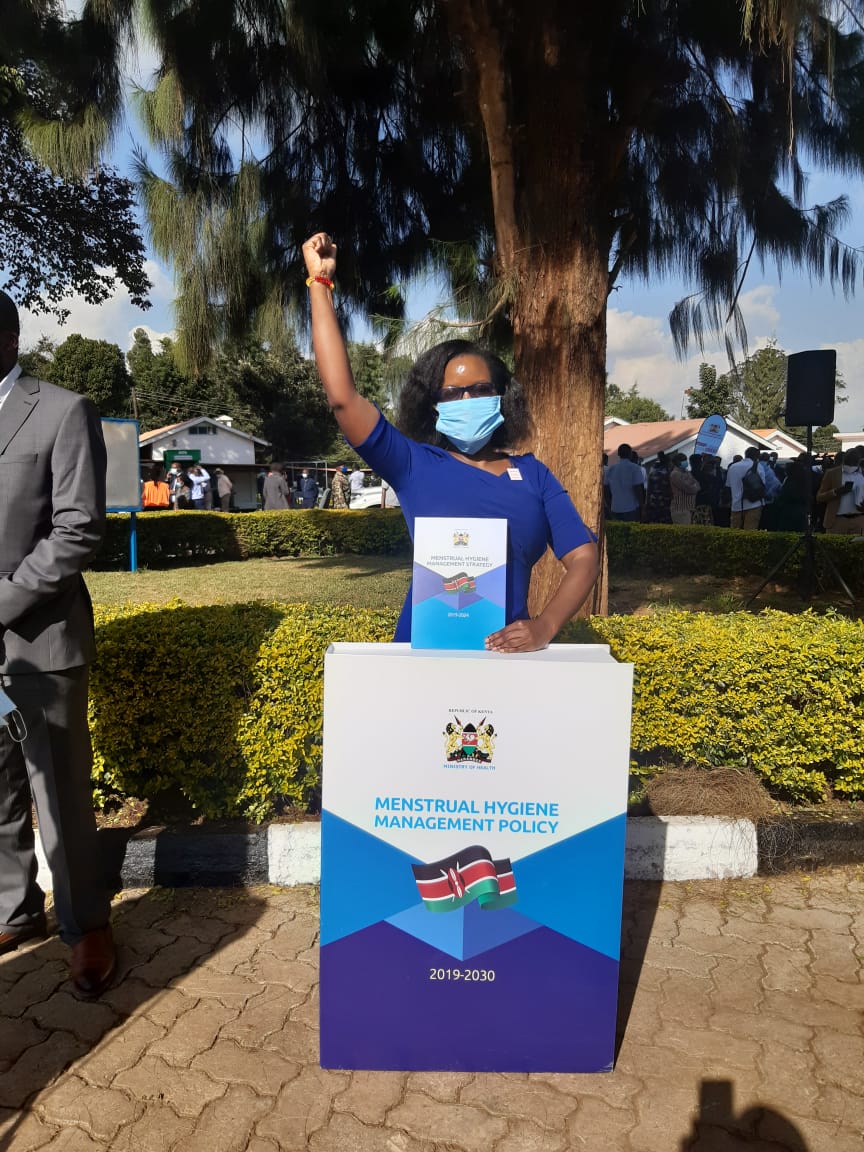Male Breastfeeding Champions in Kwale
Tuesday, 30 August, 2022

Bakari Muganga – 38, currently has four wives and 17 children. He narrates his family journey with breastfeeding. “I had no education and could not find a job. So, starting a family was the only identity I could earn for myself,” says Bakari while seated with his wives at his home in Kwale County during our interview.
“There are so many things that we did not know about childcare because even my wives never went to school. Our first seven children were born so close together and are either sickly or have stunted growth. We fed our babies with porridge, water and sometimes cow milk before they reached six months. In addition, whenever any of my wives got pregnant, they would stop breastfeeding the young babies because we believed that it would harm the unborn baby,” explains Bakari.
Bakari’s situation unfolds with worrying statistics from Kwale County that indicate that 3 out of 10 children in the county suffer from malnutrition. The poverty levels are at 70 per cent and literacy levels are at 57 per cent. These have greatly affected the WHO-recommended exclusive breastfeeding for the first six months of a child’s life, and continued breastfeeding for 2 years and beyond.
To empower families’ like Bakari’s and save the lives of women and children, the USAID Stawisha Pwani project-initiated partner support groups known as mother to mother support groups. The groups provide safe spaces where pregnant women and mothers with young children under two years, and their spouses come together to share experiences, give and receive information on family planning, pregnancy, exclusive breastfeeding and infant nutrition.
 “Since I joined the Dzitenge partner support group, I understand that ensuring a family receives good nutrition is not only the mother’s responsibility. Especially, in our area – Kinango sub county – where the majority of the men are farmers and can ensure that pregnant women have access to a variety of foods and fruits as well as should not push them to do strenuous jobs during pregnancy and after delivery. It is not normal in the Duruma culture for a man to do household chores like holding a baby or cooking for the family. On the contrary, I have come to understand that a woman cannot take care of a newborn and complete chores at the same time. When the baby is crying and the mother has to cook for the family, the mother does not have time to adequately breastfeed the baby so she must be helped,” remarks Bakari.
“Since I joined the Dzitenge partner support group, I understand that ensuring a family receives good nutrition is not only the mother’s responsibility. Especially, in our area – Kinango sub county – where the majority of the men are farmers and can ensure that pregnant women have access to a variety of foods and fruits as well as should not push them to do strenuous jobs during pregnancy and after delivery. It is not normal in the Duruma culture for a man to do household chores like holding a baby or cooking for the family. On the contrary, I have come to understand that a woman cannot take care of a newborn and complete chores at the same time. When the baby is crying and the mother has to cook for the family, the mother does not have time to adequately breastfeed the baby so she must be helped,” remarks Bakari.
“The other thing that has helped my family is seeking treatment at the health center. My first wife kept having miscarriages but she is now able to give birth safely. Daktari wa nyanjani -community health workers – who facilitate the support groups and make home visits have taught us that a pregnant woman must visit the health facility for antenatal care. After all, they need some additional supplements like folic acid to support the development of the baby and protect the mother. Its not that we could not access the hospital or source for nutritious foods – we just didn’t have the right information,” said Bakari.
Limited information on the importance of breastfeeding among communities and lack of support from partners of breastfeeding women have greatly contributed to malnutrition among children under 2 years. “Strengthening and prioritising the peer groups have a significant impact on maternal and child health outcomes. Mother to mother support groups have demonstrated success in promoting exclusive breastfeeding, improving complementary feeding practices, and economically empowering women in Kwale County.” says Faith Wangeci, – USAID Stawisha Pwani Nutrition Technical officer.
The USAID Stawisha Pwani project has trained at least 229 community health workers (CHWs) on modules of maternal and child health, and nutrition to empower households to overcome barriers to access and utilisation of maternal and child health services. The project is currently supporting 198 mother-to-mother support groups comprising of at least 15 members each.

Dzitenge support group
Amref Health Africa teams up with African communities to create lasting health change.




